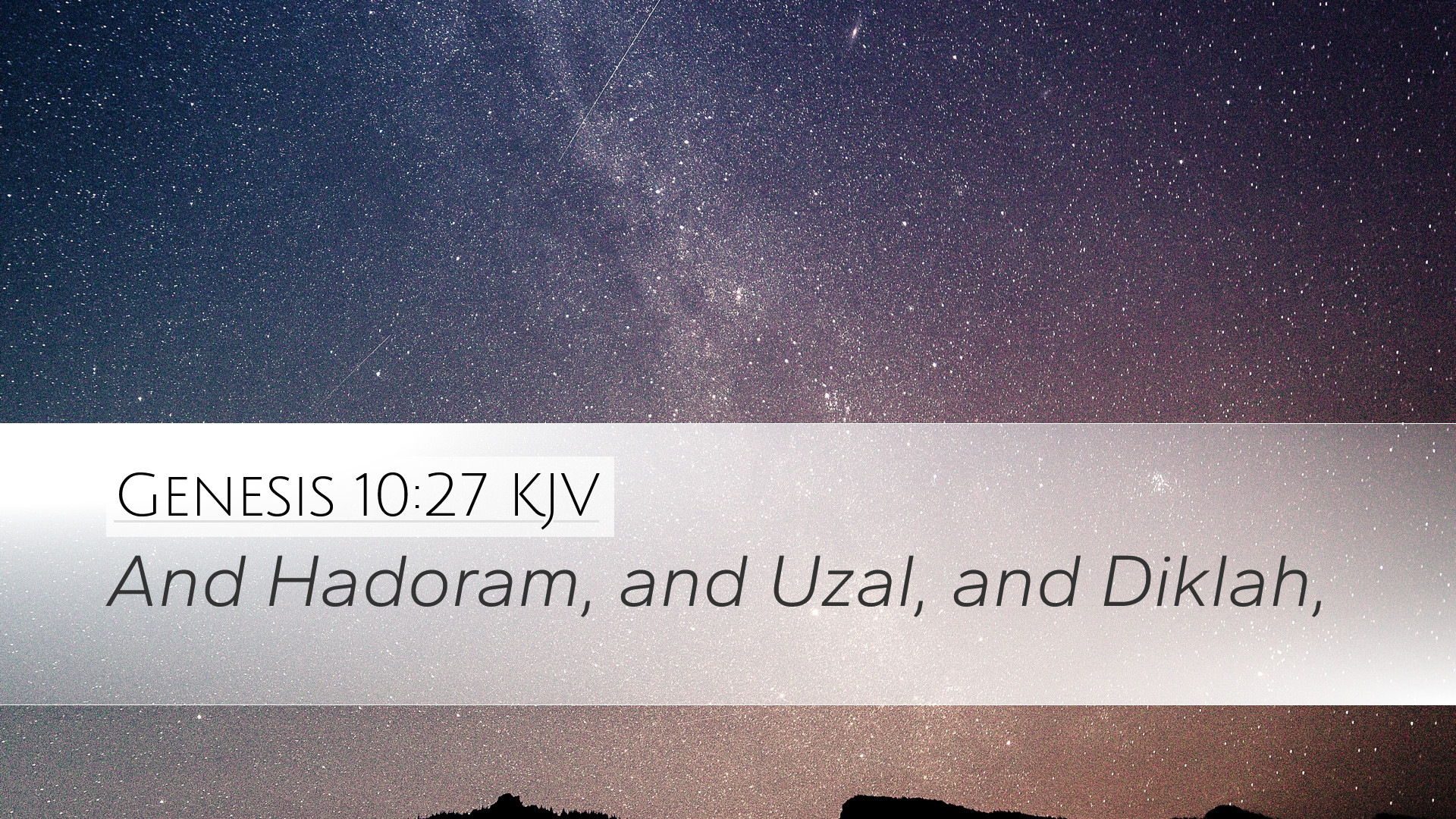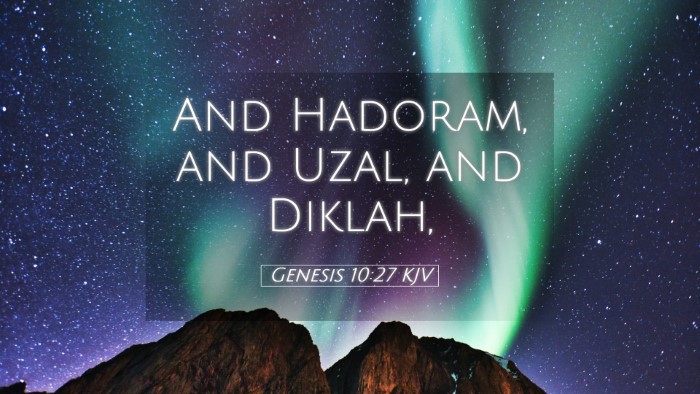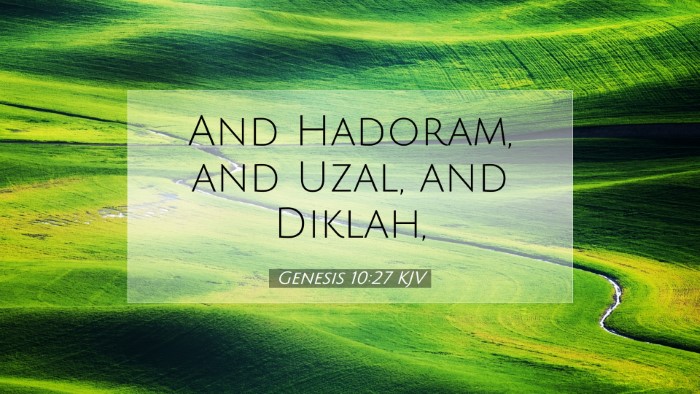Commentary on Genesis 10:27
Verse: Genesis 10:27 - "And Hadoram, and Uzal, and Diklah,"
Introduction
The genealogies presented in Genesis 10 serve as a critical component in understanding the post-flood world and the origins of various nations. This commentary will explore the significance of the descendants listed in this verse, particularly in the context of biblical history and theological implications.
Contextual Analysis
Genesis 10 is often referred to as the "Table of Nations," detailing the descendants of Noah's sons—Shem, Ham, and Japheth. This chapter outlines the dispersal of peoples and their geographic settlements after the flood, setting the stage for the coming narrative of human history. The names mentioned in Genesis 10:27, though brief, encapsulate a profound narrative about lineage and the unfolding of God's plan for humanity.
Lineage and Heritage
Hadoram, Uzal, and Diklah are among the names that forge a connection back to Noah, emphasizing themes of legacy and family. Each of these names carries cultural and possibly geographical significance that reflects the broader context of the ancient Near East.
- Hadoram: Often associated with rulers or as a term for greatness; this name suggests a lineage that may have implications for leadership or prominence.
- Uzal: Believed to reference a region known for its trade or goods, indicating the commercial relationships that these descendants may have had with neighboring peoples.
- Diklah: The name may be linked with the concept of a palm tree or a place where palm trees abound, suggesting agricultural prosperity.
Theological Implications
The genealogy presented in Genesis 10 carries theological significance that extends beyond mere historical data. In examining the descendants, several reflections emerge:
- God's Sovereignty: The accounts of each family highlight the sovereignty of God in determining the nations and their boundaries, as noted in Acts 17:26.
- Unity and Diversity: While the chapter underscores the unity of the human race descending from Noah, it also reflects the diversity of cultures, languages, and nations that God intended as part of His creation.
- Fulfillment of Promises: The fulfillment of God's command to "be fruitful and multiply" is evidenced in the proliferation of nations, showcasing God's faithfulness to His promise to Noah.
Observations from Commentators
Various public domain commentators provide insights that enrich our understanding of this passage:
Matthew Henry
Matthew Henry elucidates the importance of genealogies by stating that they bear witness to God's providence and preservation of a remnant. He emphasizes the spiritual application that can be drawn from the families descending from Noah, notably in tracing the line leading to Christ.
Albert Barnes
Albert Barnes remarks on the implications of nationhood and identity reflected in the genealogies. He points out that these names were part of the fulfilling role of maintaining and cultivating culture and society after the dispersal at Babel, serving as a record of God's plan unfolding through time.
Adam Clarke
Adam Clarke provides a meticulous linguistic analysis of the names, suggesting their meaning reflects characteristics of the peoples they represent. He asserts that understanding these names and their origins is vital for grasping the historical context of the ancient world.
Practical Applications
For pastors, students, theologians, and Bible scholars, this passage carries several relevant applications:
- Preaching and Teaching: The genealogies can be used to illustrate the unfolding story of Scripture, emphasizing God's providential care and purpose through history.
- Cultural Awareness: Understanding these names and their meanings can promote greater appreciation for the diversity and complexity of God’s creation across cultures.
- Encouragement in Faith: Reflecting on God’s faithfulness throughout generations can serve as an encouragement for believers today, affirming that God’s plan encompasses all nations and peoples.
Conclusion
Genesis 10:27, while succinct, contributes to a rich tapestry of biblical history and divine purpose. As we consider the descendants of Hadoram, Uzal, and Diklah, we are reminded of God's overarching narrative—His call to unity amid diversity and His sovereignty over all creation. These genealogies not only serve as historical records but also as profound lessons for contemporary faith and practice.


